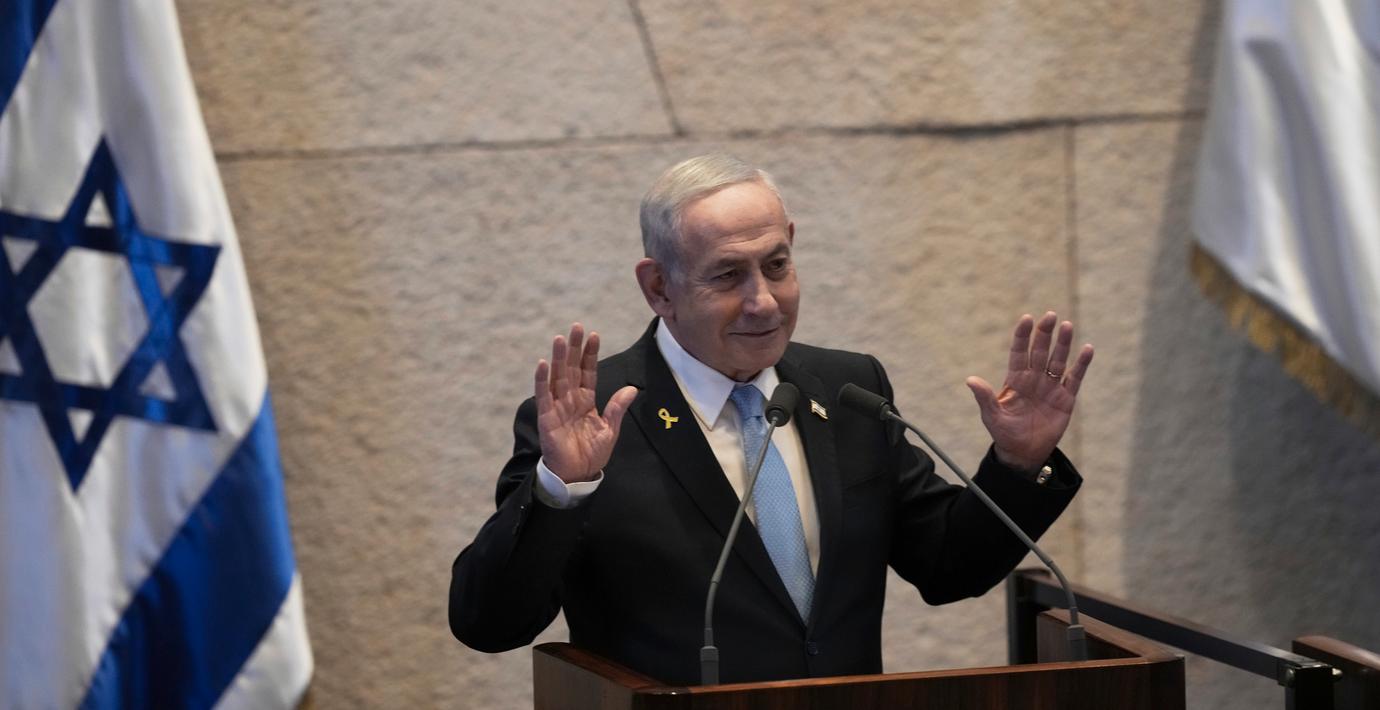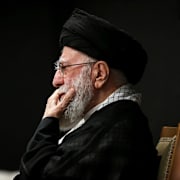
Netanyahu: Vi har banat väg för fler fredsavtal
Israels premiärminister Benjamin Netanyahu säger att ”segern över Iran” har banat väg för fler fredsavtal i regionen, rapporterar israeliska medier.
– Det finns ett gyllene tillfälle som inte får missas. Vi får inte slösa bort en enda dag, säger han i ett uttalande.
Hans kommentarer kommer dagen efter att Steve Witkoff, Trumps särskilda sändebud till Mellanöstern, pratat om att fler länder väntas ansluta sig till Abrahamavtalen.
– Vi tror att vi har stora besked på gång om länder som kommer att gå med i Abrahamavtalen, sa han till CNBC.
Abrahamavtalen är namnet på de normaliseringsavtal som undertecknades av Israel och flera arabstater under Trumps första mandatperiod.
bakgrund
Abrahamavtalen
Wikipedia (en)
The Abraham Accords are a set of agreements that established diplomatic normalization between Israel and several Arab states, beginning with the United Arab Emirates and Bahrain. Announced in August and September 2020 and signed in Washington, D.C. on September 15, 2020, the accords were mediated by the United States under President Donald Trump. The UAE and Bahrain became the first Arab countries to formally recognize Israel since Jordan in 1994. In the months that followed, Sudan and Morocco also agreed to normalize relations with Israel, although Sudan's agreement remains unratified as of 2024.
The accords emerged against the backdrop of growing unofficial cooperation between Israel and Sunni Arab states throughout the 2010s, driven by shared concerns about Iran. Efforts to build ties had become increasingly public by 2018, with visits by Israeli officials to Gulf states and the start of limited military and intelligence cooperation. In mid-2020, a normalization deal between Israel and the UAE was brokered in exchange for the suspension of Israeli plans to annex parts of the West Bank, as proposed in the Trump peace plan.
The agreements formalized economic, diplomatic, and security cooperation. In Morocco's case, normalization came with U.S. recognition of Moroccan sovereignty over Western Sahara. For Sudan, it included removal from the U.S. list of state sponsors of terrorism and access to international financial support. The accords were presented in elaborate ceremonies and widely promoted by the Trump administration as a major diplomatic achievement.
Reactions in the Arab world were mixed. While governments expressed support, public opinion in many countries remained opposed, particularly due to the accords' lack of progress on resolving the Israeli–Palestinian conflict. Despite this, the accords led to new initiatives in trade, defense, energy, technology, and cultural exchange. The name "Abraham Accords" was chosen to reflect the shared heritage of the Abrahamic religions—Judaism and Islam.

Se Steve Witkoffs medverkan i CNBC:s sändning här
Omni är politiskt obundna och oberoende. Vi strävar efter att ge fler perspektiv på nyheterna. Har du frågor eller synpunkter kring vår rapportering? Kontakta redaktionen



